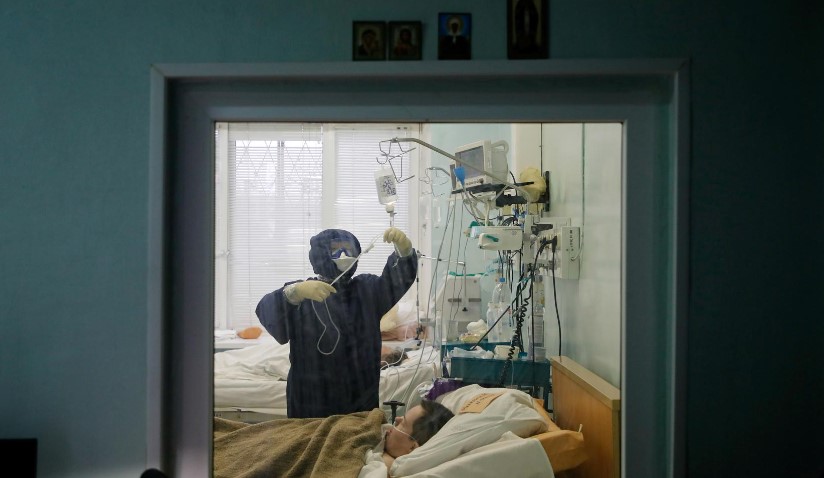St Petersburg is running out of hospital beds for COVID-19 patients, city authorities said, as one of around half a dozen firms licenced to produce Russia’s Sputnik V vaccine began deliveries across the country.
Biotech group Biocad said on Wednesday it was supplying the shot as part of a national inoculation programme. More than 200,000 people in Russia have already been vaccinated against the disease.
Russia is battling a second wave of the virus and, while authorities have so far relied on targeted curbs rather than imposing a second national lockdown to contain it, the Kremlin warned last week that St Petersburg was close to crossing a “red line”.
Oleg Ergashev, deputy governor in the city - Russia’s second largest and President Vladimir Putin’s birthplace - said just 4% of the beds allocated to COVID patients were vacant.
-We understand that additional capacities need to be deployed- he told local television late on Tuesday.
The city of around 5 million people has recorded more than 185,000 infections and 6,529 deaths since the start of the pandemic - compared with, respectively, more than 2,730,000 and 48,500 nationwide.
Authorities said 596 people had died from COVID-19 across the country in the past 24 hours.
Data from the state statistics service showed that Russia recorded nearly 140,000 deaths in excess of the five-year average between April and October, including more than 50,000 in October.
Epidemiologists say excess mortality is the best way of gauging the number to have died from a disease outbreak because it is internationally comparable.
Data published this week found Sputnik V, which was approved by Russian regulators in August after less than two months of human testing, to be 91.4% effective.
Trials of the vaccine are ongoing in Belarus, the United Arab Emirates, Venezuela and India.
